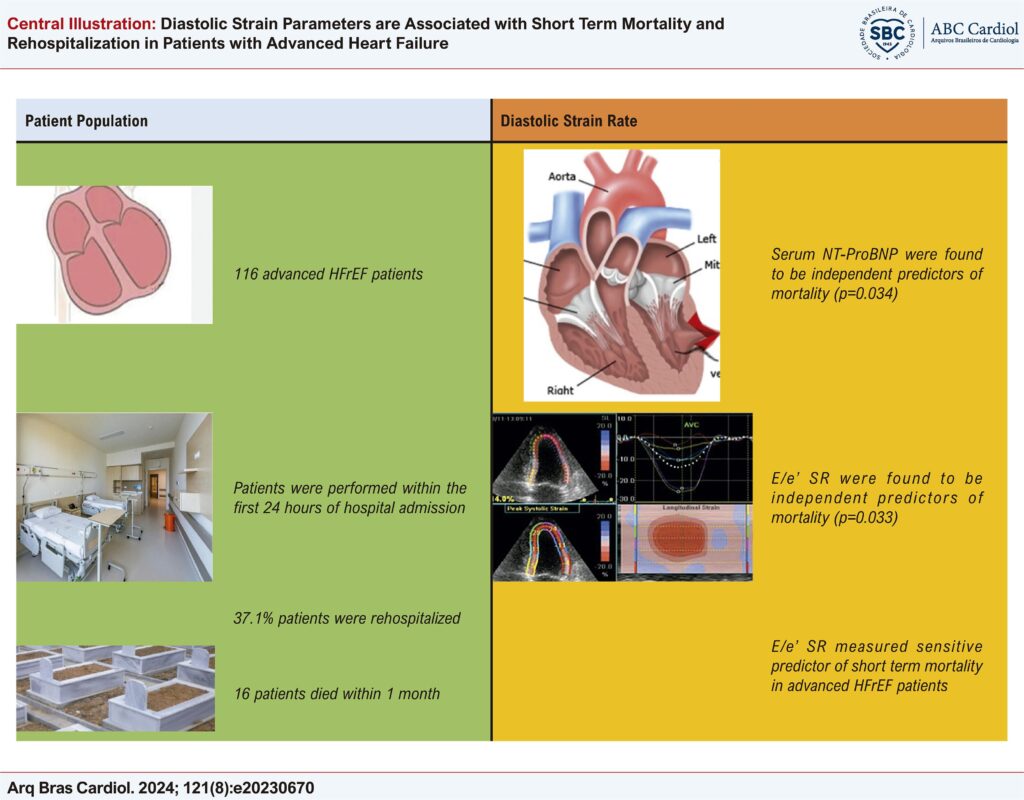Arq. Bras. Cardiol. 2024; 121(8): e20230670
Diastolic Strain Parameters are Associated with Short Term Mortality and Rehospitalization in Patients with Advanced Heart Failure
This Original Article is referred by the Short Editorial "Advanced Heart Failure and Onset of New Prognostic Markers: Where are We?".
Abstract
Background
Heart failure (HF) is a leading cause of hospitalization and mortality worldwide and places a great economic burden on healthcare systems. Identification of prognostic factors in HF patients is of great importance to establish optimal management strategies and to avoid unnecessary invasive and costly procedures in end-stage patients.
Objectives
In the current study, we aimed to investigate the association between diastolic strain parameters including E/e’ SR, and short-term outcomes in advanced HF patients.
Methods
The population study included 116 advanced HF with reduced ejection fraction (HFrEF) patients. Clinical, laboratory, and echocardiographic evaluations of the patients were performed within the first 24 hours of hospital admission. Patients were followed for one month and any re-hospitalization due to worsening of HF symptoms and any mortality was recorded. The level of significance adopted in the statistical analysis was 5%.
Results
E/e’ SR was significantly higher in the patient group compared to the control group (p=0.001). During one-month follow-up, 13.8% of patients died and 37.1% of patients were rehospitalized. Serum NT-ProBNP (p=0.034) and E/e’ SR (p=0.033) were found to be independent predictors of mortality and ACEİ use (p=0.027) and apical 3C strain (p=0.011) were found to be independent predictors of rehospitalization in the patient group.
Conclusion
Findings of the current prospective study demonstrate that E/e’ SR measured by speckle tracking echocardiography is an independent and sensitive predictor of short-term mortality in advanced HFrEF patients and may have a role in the identification of end-stage HFrEF patients.
Keywords: Heart failure; Mortality; Patient Readmission
365

